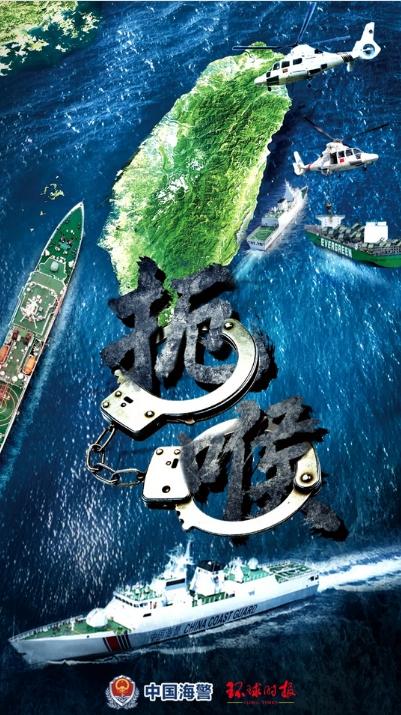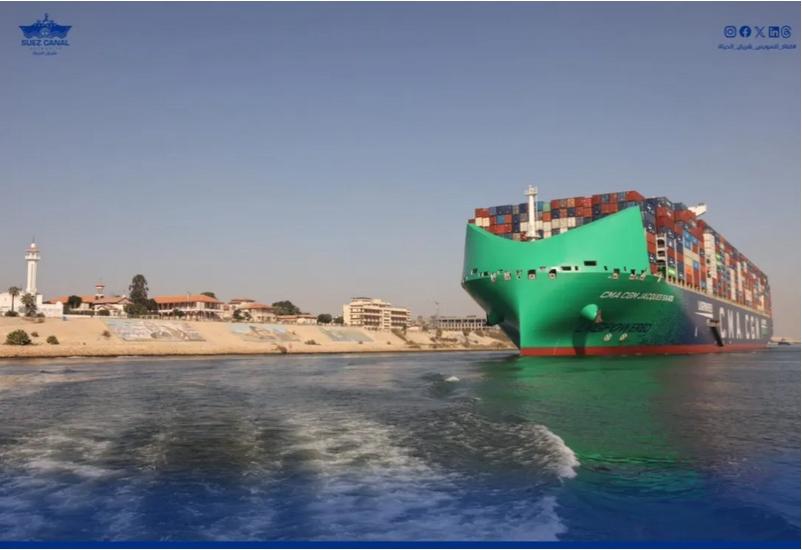
在之前文章,关于在船舶描述的条款最后面加上“ADA WOG”的合理解释问题,笔者认为,将如The “Lipa”案一样,船舶描述中的ADA,ADA WOG,对于非专业律师水平的租约起草者而言,这并非是多余的。因此条款最后的ADA WOG适用于该条款下所有的船舶描述,只要出租人对于所给出的描述是真诚的。笔者坚定地认为,船吊损坏的争议案件中,出租人对所给出的数据完全是基于真诚的,因此可以依赖WOG来免责。首先,船是新买的二手船,对于船舶的实际情况,船吊实际的安全负荷,需要在经营中再次确认,因此对于原船东给出的数据,出租人加了ADA和WOG,是出于真诚的;其次,作为一商业人士,添加这类不保证的措辞,完全有商业的现实意义。而作为承租人而言,明显的是商务意识不足,签订了对承租人而言非常不利的合同。但是如Sumption勋爵所说,商业合同本身没有公平性而言,甚至还可能是最不公平的,如果当事方能够接受。笔者因此认为,船吊损坏案件中的承租人,必须得为自己的失误买单,或者交学费。
然而,案中的当事人似乎对笔者这个解释仍然抱有怀疑,之后去询问专业人士,然后转发了如下答复给笔者。
昨天我去参加了standardclub的会议见很多大律师,咨询了一下我们的案子情况不乐观,第一个,原来美国保赔协会中国的老大,______,他是香港和伦敦律师,他说吊是很清晰的,有证书30吨,ada wog不适用;还咨询了bimco大中华区经理,_____律师,他的观点跟_____的一样也不适用,他们都认为在有争议的时候关舱,他们觉得这个作法风险太大,他们都不支持。
对于两位专业人士给出这种答复,笔者感觉非常失望。第一,如果没有查核租船合同的全文,而仅仅凭印象中的观念然后作出这种判断,明显武断。第二,所在的位置越高,如果观点错误那么将误导更多人。笔者也是异常自信的人,因此,必须来反驳一下。
关于WOG的具体解释问题,在《Without Guarantee的法律效力》一文中已经举例了几个关于WOG的先例,不在此重复。针对协会律师们的观点,因为吊有证书,所以ADA,WOG不适用这个观点,先来看看几个有类似措辞有关的先例。
一、Louis Dreyfus & Cie. v. Parnaso Cia.Naviera,
在该案中,船舶在抵达装港La Pallice的时候,船长递交了宣载通知书,声称是根据租船合同第1条发出的书面声明。该通知的具体内容如下:
I the master . . . of the steamer Dominator I have notify you thatI shall require 300 tons wheat in bags for loading and the approximative (sic)cargo to the holds will be as follows:-
No. 1 hold 1600 long tons.
2 hold 3000 do.
3 hold 2000 do.
4 hold 2150 do.
5 hold 1650 do.
TOTAL:- 10,400 tons.
随后由该轮的Roussos船长签署。该轮开始装载,但在装载时,航行时间届时已经到冬季,并且证明无法运载全部10,400吨,实际上该轮总共装了10,069吨,比宣载短少了331吨。但根据船长的宣载通知,承租人已经将货物运到La Pallice准备好装货,并且由于该轮无法装载331吨,导致产生了将这部分货物运送到其他地方的费用,这些费用相当于部分费用155英镑,承租人于是从运费中扣除此费用。
出租人拒绝承担此费用,随后双方诉诸仲裁。最终上诉到上诉法院,
其中,上诉院的Harman勋爵认为,他毫不怀疑法官正确地解释了租船合同的措辞,而且所有这些都构成合同的一部分,也就是说,选项短语不仅仅包括“期望的措辞”,在Morris v. Levison, (1876) 1 C.P.D.155案中,第160段中被驳回。那么这些措辞当然是根据背景环境来看,意味着什么?考虑到我们委员会所引用的权威,Carlton案和Jardine,Matheson案,引用这一选项之前的词的含义是毫无疑问的。它们是出租人的保证,不得少于8,550吨。如果船舶需要这么多,但没有更多,即使她可以装载更多,他们给予托运人装载到更高数字的权利。因此,“full andcomplete cargo”的主要含义在国际上得以实现。以下选项是出租人代理人(船长)通过声明数量来进一步限制相同权利的选项。Harman勋爵认为,这个声明不需要做出,这确实是一种选择。但是,如果行使选择权当然是在文件规定的范围内,则船长宣布的数字必须写入合同,并且在各方之间构成全部和完整的货物。Harman勋爵认为租约起草并不高雅。最好用“吨数不超过10,400吨或不少于8550吨”这样的词语表达,因为船长应在装货开始前以书面形式声明,将其视为全部和完整的货物。不过,Harman勋爵认为其含义是相当清楚的。
下一个问题是通知的含义。法官认为,选择权中的“数量”必须被解释为“确切数量”,必须使通知中的措辞符合要求,并且数量应精确地理解为10,400吨,尽管该词语“近似”。因此,法官觉得必须给后者一个不自然的含义,并把它当作对这种微小的差异的引用,正如在微量学说的理论中暗示的那样。Harman勋爵认为对他自己而言,认为没有必要抛弃适用于解释所有文件的基本原则,即如果可能的话,为每个词赋予其自然含义。他认为“近似”必须被赋予其“约”或“更多或更少”的自然含义,并且不论适用于该表达的任何容许度都不低于10,400吨的合同的一部分。当然,这是双向的。如果船可能运载更多,那么托运人本可以要求超额的部分;如果更少(事实证明是这种情况),那么他们必须同意少些。双方似乎都认为这个数量可以用“10,400或多或少”这样的词语来说明,Harman勋爵认为这是正确的。但是,如果这是错误的,那么承租人应当反对,并坚持更准确的定义。
The next question is of the meaning of the notice. The Judgethought that "quantity" in the option must be construed as"exact quantity", that ut res magis valeat the words in the noticemust be made to comply, and that the quantity should be read as 10,400 tonsprecisely, notwithstanding the word "approximative." He thereforefelt bound to give the latter word an unnatural meaning, and treat it as areference to such trifling differences as would be implied in its absence underthe doctrine of de minimis. Formyself I see no necessity to desert the cardinal principle applicable to theconstruction of all documents, namely, to give its natural meaning to everyword, if possible. I think "approximative" must be given its naturalmeaning of "about" or "more or less", and that whatevertolerance is appropriate to that expression becomes no less a part of thecontract than the reference to 10,400. This, of course, works both ways. If theship could have carried more, then the shippers could have asked for theexcess; if less (as proved to be the case) then they must be content with less.Both sides appear to have assumed that the quantity can be well declared bysuch words as "10,400 more or less", and I think that is right. But,if it is wrong, the charterers should have objected at the time and insisted ona more exact definition.
或者,该选择权从来没有被执行过,在那种情况下,Harman勋爵认为没有违约,因为实际上装满了全部的完整货物。仍然要考虑承载能力的不足,大约3.18%,该数量是否仍在指定的容差范围内。 Harman勋爵认为它确实如此。这不是一个很大的差别,因为这会大大地改变义务,使它成为不同的讨价还价。 Harman勋爵得出结论,出租人没有违约。因此,出租人上诉被允许。承租人继续上诉至贵族院被拒绝。
在这个案中,Harman勋爵认为“approximative”这一措辞,必须被赋予其“约”或“更多或更少”的自然含义。同时指出,如果承租人不同意,那么承租人应当反对,并且要求提供更准确的定义。
二、Cargo Ships ‘El-Yam’ Ltd v Invotra NV [1958] 1 Lloyd’s Rep.39案
在该案中,出租人和承租人为Tel Aviv轮签订了一份合同,其中合同前言1-10行有关船舶描述部分如下:
1 This charter-party, made and concluded in the City of London on the 21st day of February 1955
2 between Messrs. Cargo Ships El-Yam Limited
3 owners of the good
4 of 7187 tons gross register, and 4323 tons net register, having engines of . . .indicated horse power
5 and with hull, machinery and equipment in a thoroughly efficient state, and classed 100 A1 at Lloyd's Register
6 at . . .of about 478,000 cubic feet bale capacity, including one and three deep-tanks which understood to beof total 27,000 cubic feet and about 10,784 tons of 2240 lbs.
7 deadweight capacity (cargo and bunkers, including fresh water and stores not exceeding 250tons,
8 allowing aminimum of fifty tons) on a draft of 27 feet 834 inches on . . . Summer freeboard, inclusive of permanent bunkers,
9 which areof the capacity of about . . . tons of fuel, and capable of steaming, fully laden, under good weather
10 conditions about 10/1012 knots on a consumption of about 26/27 best grade fueloil . . .
涉及争议的是船舶的舱容问题,可以简单概括如下,即该轮的包装容积约为478,000立方尺,包括1号和3号的深舱,总共27,000立方尺。
Tel Aviv was of about 478,000 cubic feet bale capacity including one and three deep tanks which understood to be of total 27,000 cubic feet.
这个包装容积(balecapacity),是指指货舱内能够装载包装件货的空间,它是包括舱口围在内,由两舷肋骨护板内侧、两横隔舱壁、舱底板之顶面和横梁下端所包围的理论容积,在扣除舱内、通风孔等所占容积后得到的。与此对应的是散装容积(grain capacity),这个是指指货舱能够装载散货的空间,它是包括舱口围在内,由两舷外板内侧、两横隔舱壁和舱底板之顶面所包围的理论容积,在扣除舱内骨架、横梁、支柱等所占容积后得到的。一般情况下,货舱的包装容积约为散装容积的90%-95%。
商事法院的Devlin法官对此的解释如下。“包装容积”是劳氏船级社定义的一个公认的术语,与“散装容积”相对照。它们都是船上可用于货物的空间的测量结果,但是,如果货物是散装的,例如谷物货物,它可以填充货舱的每个角落和裂缝,即货物装在捆包中不能这样做,因此,可用的立方空间不能经济地使用。正是出于这个原因,才有这两个容量的测量。包装容积将包括深舱,但是本航次装载的货物是煤炭,因此将不会使用深舱来装货。
"Bale capacity" is a well recognized term which is defined in Lloyd's Register of Shipping and is to be contrasted with "grain capacity." They areboth measurements of the space in the ship that is available for cargo, but,whereas if cargo is loaded in bulk, such as grain cargo, it can fill, so tospeak, every nook and cranny of the hold, cargo that is loaded in bales cannotdo that, and, therefore, the cubic space available cannot be used aseconomically. It is for this reason that there are these two measurements ofcapacity.
The bale capacity would include the deep tanks as well as the holds, because the deeptanks are available for cargo.
但实际情况是,1号和3号深舱的总包装容积为30,756立方尺,与合同中描述的27,000立方尺差了约3,756立方尺。承租人认为出租人构成误述,要求出租人降低租金水平,但出租人拒绝。承租人因而认为出租人不履行其义务,撤销了租船合同。因此争议的焦点问题就是,合同中描述的包装容积与实际的包装容易之间的差异,是否构成了错误描述,使得承租人有权撤销租船合同。
商事法院的Devlin法官经过分析认为,虽然包装容积差异3,756立方尺,但这不足以说明承租人有权撤销合同;出租人没有违反合同条件。最终判承租人单方面撤销合同构成毁约。
(1)承租人的代理人与出租人的代理人之间存在误解,承租人的代理人认为451,000立方尺仅仅指货舱容积,但出租人的代理人认为(事实上是这样)它包括2号深舱,出租人没有表示船舶货舱容积为451,000立方尺。
(2)作为解释问题,是否字面解释“包装容积大约478,000立方尺,包括1号和3号深舱”这一短语是否被解释,或者是否试图确定各方的意图在之前的谈判中,他们的正确解释是478,000人包括2个深舱,因此在租船合同中的描述中没有对船舶的总包装容积作出声明。
(3)包装容积超过6,000立方尺,但不影响合同。
(4)由于在租船合同中没有提及2号深舱的容积,所以深舱容积超过14%的声明并不赋予承租人撤销合同的权利;虽然包装容积差异3,756立方尺,意味着承租人货舱的空间会少得多,这不足以说明承租人有权撤销合同;出租人没有违反条件;因此承租人因其错误毁约构成了违反租船合同。
Held, (1) that there was a misunderstanding between charterers'agent and shipowners' agent, charterers' agent thinking that 451,000 cu. ft.referred to the holds only and shipowners' agent thinking (as was the fact)that it included No. 2 deep tank, and that there was no representation byshipowners that the capacity of the holds was 451,000 cu. ft.
- Held, (2) that, as amatter of construction, whether the phrase "of about 478,000 cubic feetbale capacity, including one and three deep tanks" was interpretedliterally or whether one sought to ascertain the intention of the parties, as expressed by them in the previous negotiations, the right construction was that thefigure 478,000 included No. 2 deep tank and that therefore there was no statement in the charter-party description as to the total bale capacity of theholds only.
- Held, (3) that an excess of 6000 cu. ft. of bale capacity had no effect upon the contract.
- Held, (4) that, as thecapacity of No. 2 deep tank was not mentioned in the charter-party, a statementshowing an excess of deep tank space, even as much as 14 per cent., was notsuch a representation as entitled charterers to rescind; that if the 3756 cu.ft. excess in deep tanks meant that charterers would have that much less spacein the holds, that would not be a sufficient misdescription to entitle charterers to rescind; that there was no breach of condition by shipowners; andthat therefore charterers were in breach of charter-party by its wrongful repudiation - Judgment for shipowners- Special order as to costs.
关于“about”这个措词的含义, Devlin法官在第52页判决书中说到:
If I had to determine whether the margin of 1.2 per cent. waswithin the phrase "about", it might be a point on the evidence that Ihave had which would require some careful consideration. Prima facie, I must say that I should have thought it was a small percentage and might well have been within the phrase "about".
1.2%的偏差在about的范围内。
该案的情况,也可以参《Voyage charter》Chapter 3-Description of the Ship, 3.24如下:
3.24 The margin of error which is permissible on this ground is not easy to describe inpreciseterms. Essentially thequestion is whether those engaged in the business of letting out ships oncharter and of shipping cargoes wouldconsider that the discrepancy in question was fairly comprehended by the word “about”.
A charterparty for the Tel Aviv described her as “of about 478,000 cubic feetbale capacity”, but heractual bale capacity was484,015 cu. ft. Devlin J. held that even if this was a misdescription andthereforea breach by owners, their breach was not repudiatory. He also expressed the following view on the meaning of “about”: “If I had to determine whether the margin of 1.2 per cent was within the phrase ‘about’, it might be a point on the evidencethat I have had which would require some careful consideration.Prima facie, I must say that I should have thought it was a small percentage and mightwellhave been within the phrase ‘about’ but [counsel for the shipowner] rightly relies upon the evidence on this point. . .as showingthat 1000 cu. ft. or thereabouts would be the sort of margin as a matter of business so contemplated within the meaning of the word ‘about’.”
(Cargo Ships “El-Yam” v. “Invotra” [1958] 1 Lloyd’s Rep. 39, 52. See also Lond.Arb. 18/06(2006) 702 L.M.L.N. 3.) 43
三、Mackill v Wright Bros & Co Ltd (1888) 14 AppCas 106案
在该案中,The“Launderdale”轮被租用从Glasgow港装运杂货到Karachi港卸,其中包括铁路机车和机械。出租人保证该船将载运2,000吨载重量的货物,包括规定数量的给定尺寸和类型的机器。双方同意,如果船舶没有载运保证重量的货物,则按比例减少包干运费。
对于该条保证性条款的解释问题,Macnaghten勋爵认为,如果将这一规定解读为允许在每次少装货的情况下减少运费都是不合理的。这样的解释会使出租人处于承租人的摆布之下。他们可能会占用整个空间供其使用,但货物可能大大低于预期的重量,因此出租人将失去其全额运费,虽然并没有造成任何过错。Macnaghten勋爵认为,如果船舶没有载运规定的重量,假设货物是按照租船合同规定的货物运输的,即普通杂货是可公平和合理可意料的,那么该条款是有效的。与最大件相对应的机器的比例与在租约边界中指定的数量,尺寸和重量。换句话说(对于承租人来说,这是最有利的),如果船舶因不能归因于承租人的任何原因而没有装载2,000吨重的货量,则该规定将生效。Macnaghten勋爵认为在该轮承运货物的空间损失和货物的短少是由承租人自己造成的,这是他们的做法。Macnaghten勋爵认为当事人双方都不明显是合理的,但承租人更加不合理,而且更重要的是,他们对租船合同的解释和他们自己的立场持错误观点。因此,同意出租人上诉。
My Lords,the question turns upon the true construction of a charterparty in some respects peculiar. It is a charter for the hire of a vessel for a lump sum from Glasgow toKurrachee. It has a note in the margin as to the description of part of the proposed cargo, and it contains this guarantee, ‘Owners guarantee that thevessel shall carry not less than 2,000 tons dead weight of cargo’. In effect,the charterers say to the owners,‘We want a vessel to carry to Kurrachee ageneral cargo, including parcels of machinery;we give you the dimensions and number of the largest pieces; will your vessel carry 2,000 tons dead weight?’The owners say ‘It will’. That is, I think, something more than a mereguarantee of carrying capacity. It is a guarantee of the vessel’s carryingcapacity with reference to the contemplated voyage and the description of thecargo proposed to be shipped, so far as that description was made known to theowners . . .. . . it seems to me that the fair result of the evidence is, thatin regard to the machinery which was tendered for shipment and shipped, thecargo was not such a cargo as was contemplated by the charterparty. Itcontained more large pieces; it was more bulky in comparison to its weight, andit was more awkward for stowage than the terms of the charterparty wouldnaturally have led the owners to expect.
These beingthe material facts of the case, the clause in the charterparty on which thequestion turns remains to be considered. The charterparty has this provision:‘Should the vessel not carry the guaranteed dead weight, as above, any expenseincurred from this cause to be borne by the owners, and a pro rata deductionper ton to be made from the first payment of freight.’ What is the meaning ofthis provision? What is the event contemplated? Is it the case of the vessel(1) not actually carrying 2,000 tons dead weight from any cause whatever; or(2) not carrying that weight from any cause not attributable to the charterers?
I think itwould be unreasonable to read the provision as allowing abatement in thefreight in every case of short weight. Such a construction would place theshipowners at the mercy of the charterers. They might fill the whole space attheir disposal, and yet the cargo might be much under the contemplated weight,and so the shipowners would lose their full freight without any fault on theirpart.
I think thatthe provision was intended to have effect in the event of the vessel notcarrying the specified weight, assuming the cargo tendered to be such a cargoas was contemplated by the charterparty, that is, an ordinary general cargowith a fair and reasonable proportion of machinery corresponding as to the largestpieces with the numbers, dimensions, and weights specified in the margin of thecharterparty.In other words (to put it mostfavourably for the charterers), the provision was to come into effect in theevent of the vessel not carrying 2,000 tons dead weight from any cause notattributable to the charterers.
I think thatthe loss of cargo space and the short weight of the cargo carried on theLauderdale were attributable to the charterers. It was their doing . . .Neitherthe appellants nor the respondents were, I think, conspicuously reasonable. Butthe respondents were the more unreasonable of the two, and, what is more to thepurpose, I think they took a wrong view of the construction of the charterparty, and of their own position. I therefore agree that the appeal ought to be allowed.
四、W Millar & Co Ltd v Owners of SS Freden [1918]1 KB 611,CA案
在该案中,船舶被租用从Durban装满载的玉米货物到英国卸。出租人保证该船的载重能力为3,200吨,并按此数量支付运费。但是船舶在装载3,081吨时,船舶已装满。
上诉院的Swinfen Eady勋爵认为,没有争议的是,该船的载重量为3,200吨-换句话说,船舶将在这样的程度上装载货物,而不会导致在相应的载重线之下。关于特定的玉米货物,该轮只能搭载约3,081吨的货物,但这并不是因为船舶的载重能力没有得到保证,或者以任何方式被歪曲。这是因为船舶的空间,立方体容量不足以允许装载超过3,081吨的袋装玉米。承租人的代表律师主张船舶与货物有关的能力保证,即出租人已知悉货物的内容,这是袋装玉米,因此这个保证必须被理解为意味着“我们保证在这次航次中的这艘船将有能力承运,并且能够运载3,200吨袋装玉米”。但出租人表示,这不是其使用的语言,不是他们本意。出租人所表达的且坚持的是,“我们保证船舶的载重吨为3200吨”。所保证的衡量船舶能力的一项指标,总体能力与其在此航次载运具体货物无关。
Swinfen Eady勋爵引援了Mackillv Wright Bros & Co Ltd (1888)案,认为在本案中,出租人唯一的保证是参照船的一般承载能力,一定的载重量。仅仅是一个对事实的陈述,而不是关于船舶到底能装多少袋装玉米的保证。最终驳回承租人上诉。
There is no dispute that the vessel was of a deadweight capacity of 3,200 tons – in otherwords, that she would take on board a cargo to that extent without sinking the ship below her proper loadline. With regard to the particular cargo of maize she was only able to take on board 3,081 tons 560 lbs, but that was not because her deadweightcapacity was not as guaranteed, or had been in any way misrepresented. It wasbecause the cubic capacity of the space on board was insufficient to allow ofthe stowage of more than 3,081 tons 560 lbs of maize in bags. On the one hand it is said on behalf ofthe appellants, reading the guarantee of the capacity of the ship in connectionwith the cargo, that the shipowners had notice of what the cargo was to be. Itwas maize in bags, and it is said that the guarantee must be read as if itmeant ‘We guarantee that the ship on this voyage will be of a capacity to take,and will be able to carry, 3,200 tons of maize in bags’. On the other hand therespondents say ‘That is not the language which is used, and that is not whatwe meant.What we said was, and what we adhere to is,“We guarantee that the shipshall be and is of a deadweight capacity of 3,200 tons, and so it is”’. Theguarantee is a measure of the capacity of the ship, the general capacityirrespective of the particular cargo that she was to carry on this voyage.
. . .Reference was made to Mackill v Wright (1888) 14 App Cas 106. The dispute therewas whether the cargo that was actually shipped corresponded to that which wasintended, having regard to the representations made at the time the contractwas entered into. But it will be observed that the language of the contractthere was very different from what we have to consider here.There it was ‘theowners guarantee that the vessel shall carry not less than 2,000 tons deadweight of cargo’. Now that must have been a guarantee that the vessel shouldcarry that amount on the voyage in question; and then there was a subsequentclause: ‘and should the vessel not carry’ – that is, should the vessel notcarry on this particular voyage – ‘the guaranteed dead weight as above, thenany expense incurred from this cause to be borne by the owners and a pro ratareduction per ton to be made from the first payment of freight’. So that there was language there pointing to a guarantee with regard to the weight of cargoto be carried on that particular voyage, and not to the general carryingcapacity of the ship. Here it is the opposite. The only guarantee is with reference to the general carrying capacity of the ship – a certain deadweight capacity.
In my opinion the appeal fails and should be dismissed.
本案中出租人所保证的船舶的载重能力与船舶实际的装货能力并没有必然联系,承租人只要不存在错误描述,就无需承担责任。
例如在Carnegie v Conner (1889) 14 QBD 45案中,租船合同规定,船舶应该“loada cargo of creosoted sleepers and timbers”,即装载一系列的斜面枕木和木材,并表示“Charterer has option of shipping 100/200 tons of general cargo”,并且“Owners guarantee ship to carry at least about 90,000 cubic feet of 1,500 tons of dead weight ofcargo”。承租人按合同类型安排了一批货物,不超过90,000立方英尺。但是因为枕木的长度不等,许多是半截,最终船舶只能装载货物64,400立方英尺,总重1,120吨。承租人于是寻求损害赔偿。但是法官判,合同条款并不是保证该船可以载运在租约中规定的90,000立方英尺的货物,这是没有参考特定货物的抽象能力的保证。
The clause was not a guarantee that the ship would carry 90,000 cubic feet of the cargo specified in the charterparty. It was a guarantee of abstract capacity without reference to the particular cargo.
货物方面的,还可以参第7版《Time Charter》Chapter 3-The Ship, 3.54如下:
3.54 It was held in a voyage charter case that a deadweight cargo capacity guarantee included the weight of dunnage which the owners were obliged to usein proper stowage of the cargo.
The Benledi was charteredto load “a full and complete cargo of unobjectionable merchandise”. The charter provided “Owners guarantee to place 5,600 tons dead- weight cargo capacity and 300,000 cubic feet (bale space), as per builders’ plan, at disposal of charterers”. It was held by Atkin, J., that there was no breach of the deadweight cargo capacity guarantee when the cargo actually lifted was less than the weight guaranteed by
reason of the dunnage that the owners were obliged to use in proper stowage of the cargo.
Thomson v. Brocklebank [1918] 1 K.B. 655.
如果载重量方面加了“about”这个措辞,那么只要实际的货量在这个偏差范围内,那么就不会构成对载重量能力条款的违约。可以参第7版《Time Charter》Chapter 3-The Ship,3.55如下:
3.55 Both the New York Produce form and Baltime form qualify the deadweight capacity figure by theword “about”. This allows the owners a margin of accuracy: see the discussion above at paragraph 3.34. If the ship’s actual measurements are within this margin there will be no breach of the term as to deadweight capacity.
对于这个“about”的解释,也可以参《Voyage charter》Chapter 3-Description of the Ship,3.23如下:船舶载重量的声明由“约”这个词限定。标准形式也经常被修改,以便包括对船舶的进一步描述,包括例如包装容积和舱口尺寸,也类似地被限定为“约”。如果船舶虽然不完全符合规定的容量,但在“约”字所允许的误差范围内,则出租人方不存在虚假陈述或违约。 在没有任何措辞如“约”的情况下,船舶必须严格遵守该说明,但仅限于最低限度规则允许的容差量。
“About”
3.23 In the Gencon form, the statement of the ship’s deadweight carrying capacity is qualified by the word“about”. The standard form is also often modified so as to include a furtherdescription of the ship including, for example, bale capacity and hatch dimensions, also similarly qualified as “about”. If the ship, although not exactly of the stated capacity, is within the margin of error permitted by the word “about”, thereis no misrepresentation or breach of contract onthepart of the owner. In the absence of any words such as “about” the ship mustcomply exactlywith the description subject only to the tolerance allowed by the de minimis rule.
对“about”的解释也可以参第7版的《TimeCharter》Chapter3-The Ship, 3.34如下:
“About”
3.34 Particular items of description are often qualifiedby the word “about”. No simple rule can be laid down as to the tolerance allowed by this qualification. In The Resolven (1892) 9 T.L.R.75, Sir Francis Jeune commented, “I take it that words of elasticity are elastic”, meaning that the margin they import will depend on the subject matter to which they refer. In particular, the extent of the margin will depend on: (a) what is regarded as reasonable in the particular trade or according to any recognised commercial practice (see The Al Bida [1986] 1 Lloyd’s Rep. 142, perEvans, J., at page 148 and Cargo Ships El-Yam v. Invotra [1958] 1 Lloyd’s Rep. 39, below); and (b) the accuracy with which the relevant feature of the ship can reasonably be measured.
从这些古老的先例及权威可以看出,对于船舶的载重吨方面,适用“about”;同时在另一方面,就算出租人在租船合同中对载重吨作出了保证,但是这保证仅仅是陈述一个事实,和船舶最终的载货能力并没有直接关系,因为实际上的载货量与特定的货物有莫大关系,尤其是货物的形状,积载因素等。
对于这些先例的简单说明,也可以参《Voyage charter》Chapter3-Description of the Ship,3.25如下:
3.25 In earlier cases concerned with deadweight capacity, “about” was held to permit aconsiderably larger margin in percentage terms. In Morris v. Levison, where the ship was chartered to load a full and complete cargo“say about 1,100 tons”, a margin of 3 per cent was allowed, and in The Resolven, where the ship was chartered to carry “2,000 tons or there abouts”a margin of 5 per cent was held to be appropriate. InDreyfus v. Parnaso, the Court of Appeal held that a shortfall of 331 tons, on adeclared cargo quantity of “10,450 tons approximative”,was permissible. It is probable, however,that in larger capacity ships a smaller margin, in percentage terms, is appropriate.
船舶的载重吨和舱口尺寸,这些都是有船级社证书和船厂图纸(总布置图和舱容图)可查,和船吊的安全负荷SWL一样,可以查到的数据。依据这些权威,载重吨舱口尺寸都可以使用about或WOG;那么有什么理由认为,船吊的SWL不适用WOG。必须清楚的是,这个WOG的程度比about还严重的多。
描述船舶的声明可能是租船合同的基本条款,除非出租人借助“without guarantee”等词语来限定说明,否则承租人有权依赖这些信息。在没有这种限定语言的情况下,出租人在租船合同中描述船舶的声明将构成保证。如果船舶在交付时不符合出租人提供的说明,承租人没有义务接受该船。这方面的可以参《Voyage charter》Chapter 3-Description of the Ship,3A.1如下:
Description of the ship
3A.1 Statements which describe the vessel may be essential terms of the charter. The charterer is entitled to rely on this information in entering into the charter unless the owner has qualified the description by words such as “without guarantee.” In the absence of such qualifying language, the owner’s statements in the charter describing the vessel will constitute warranties.
As a result, it has often been held that the charterer is not obliged to accept the vessel if, at delivery, she does not conform to the description provided by the owner.
对船吊的安全负荷的描述属于船舶描述的一部分,协会律师竟然认为船吊描述不适用WOG,很显然,可以合理推断出他们至少没有认真看过《Voyage charter》3A.1的解释。该条款已经非常清晰明确,出租人有权利对船舶描述用WOG来加以限定。
《Voyage charter》在3.40,继续对“without guarantee”作出了解释说明,如下:
“Without guarantee”
3.40 In Japy Frères v. Sutherland, where a statement in the charter of thev essel’s deadweight was qualified by the words“without guarantee”, it was held that these words negatived any contractual promise to the effect that the deadweight was as stated. The question whether the owner was under any lesse robligation with regard to the accuracy of the statement,for example, an obligation to the effect that it was made honestly, or both honestly and on reasonable grounds, was not considered. However, Scrutton L.J. appeared to be of the view that the words would not have prevented the charterer from rescinding the charter on the grounds of misrepresentation, and, where the statementis made negligently, it is questionable whether the words are clear enough to negative liability in damages under the Misrepresentation Act. That said,it was held in The Lendoudis Evangelos II that similar words, when used to qualify a statement as to the estimated period of atime charter, negatived any duty of care, and the only obligation was to act honestly. And in The Lipa, where the description clause contained a statement of the vessel’s speed and consumption “without guarantee”, it was held that the words negatived any contractual obligation with regard to speed and consumption, reducing the estimations to the status of “bona fide representations”. Recently, Longmore L.J. has commentedthat the phrase “has acomparatively well settled meaning, viz. that there is no liability in the absence of fraud or bad faith”.
对“Without guarantee”的解释也可以参第7版的《Time Charter》Chapter3-The Ship, 3.37如下:
“Without guarantee”
3.37 Where an item of description is qualified by the words “without guarantee”, the owners give no contractual undertaking as to the matter described. The description is a representation only: see TheLipa [2001] 2 Lloyd’s Rep. 17, per Andrew Smith, J., at page21. Nevertheless, the owners are bound by an implied promise that their representation is made in good faith, that is to say with a genuine belief in its accuracy: see The Lendoudis Evangelos II [1997] 1 Lloyd’s Rep. 404. In that case the court was required to construe a charter for “duration about 70/80 days without guarantee”. Longmore, J., at page 406, rejected the submission that where an estimate was given “without guarantee”, the charterers impliedly undertook that the estimate was based on reasonable grounds.
这里面提到的几个判例,在《without guarantee的法律效力》一文中都做了详细说明。需注意的是,如果没有欺诈或者恶意的情况,那么WOG将适用所有合同条款。
基于以上理由,协会律师认为WOG不适用于船吊的描述,该观点完全错误。
对于WOG的解释问题,也可参The Rowan [2012] 1 Lloyd’s Rep. 564案,上诉法院的Longmore勋爵在第568页判决书中说到,毫不奇怪,双方可能希望通过声称它不保证而限制关于批准的义务,这个短语具有较好解决的含义,即在没有欺诈或恶意的情况下不存在责任问题。
Mr Kendrick QC submitted that, on this basis, the parties must have intended the "WOG" under "VESSEL INFO" to be also a part of the new (substituted) clause 18. This is a hopeless argument. The "vessel info" clause and clause 18 perform entirely different functions, although they are both concerned with oil company approval. The vessel info clause constitutes the description of the vessel and the information contained in it will normally be a condition of the contract entitling the charterer to terminate the charterparty if the condition is not fulfilled.It is not surprising that the parties might wish to limit the obligation in relation to approval by saying that it is without guarantee, a phrase which has a comparatively well-settled meaning, viz that there is to be no liability in the absence of fraud or bad faith: see Continental PacificShipping Ltd v Deemand Shipping Co Ltd (The Lendoudis Evangelos II)[1997] 1 Lloyd's Rep 404 and the authorities there cited. There is no reason to carry that well-settled meaning into clauses where the rubric "WOG" is not present. The fact that the oil companies identified in clause 18 are no tthe same as those identified in the vessel info clause can only confirm that that must be the position.
合约的任何措辞都有其特殊含义,如Mustill勋爵在贵族院判例,Charter Reinsurance Co Ltd v Fagan [1996] 2Lloyd’s Rep.114案中第116页判决书中所说:我相信,绝大多数的措辞,在正常对话中的主要意义上,都有其自然含义。当然,有时候直接诉诸此种意思是不合适的。因此,这个词语可能来自于专业词典,在日常对话中并没有什么意义。或者,这个词语在日常对话中是一种含义,而在专业词典中又是另一种含义。并且相关内容可能表明,文件的作者的意图看起来是后面一种。
I believe that most expressions do have a natural meaning, in the sense of their primary meaning in ordinary speech. Certainly, there are occasions where direct recourse to such ameaning is inappropriate. Thus, the word may come from a specialist vocabulary and have no significance in ordinary speech. Or it may have one meaning in common speech and another in a specialist vocabulary; and the context may show that the author of the document in it appears intended it to be understood in the latter sense. Subject to this, however, the enquiry will start, and usually finish, by asking what is the ordinary meaning of the words used.
Sumption勋爵在2017年5月份在牛津大学作的关于合约解释的演讲中提到Mustill勋爵这段话,并认为具有相当的份量。
在演讲中,关于最高法院对于合约解释的问题,Sumption勋爵继续说到:第一个也即主要的是,当事人双方协议的言辞应作为一个整体来解读,这是唯一可以采纳的能够证明当事人双方意图的直接证据。我一定不会主张将文字主义作为解释的一种方法,但是如果认为,语言只是在某些特定的背景下才有意义,这是一个谬误。大多数语言和所有正确起草的语言都具有其自身意义。我发现贬低词典和语法作为解释的手段是非常不正常的。语言是一种沟通方式,其功效取决于是否接受了一些使人们能够理解的惯例。词典和语法只是记录这些惯例的参考书。如果我们放弃了将把它们作为基本的解释工具,我们就不再能发现各方是如何相互理解的。我们只是让法官来重建一份理想的合同,而这点双方当事人可能会更合适,但实际上从未做到。
The first and main point to make is that the language of the parties’ agreement, read as a whole, is the only direct evidence of their intentions which is admissible. I would certainly not advocate literalism as anapproach to construction. But it is a fallacy to say that language is meaningful only in relation to some particular background. Most language and all properly drafted language has an autonomous meaning. I find the belittlingof dictionaries and grammars as tools of interpretation to be rather extraordinary. Language is a mode of communication. Its efficacy depends on the acceptance of a number of conventions that enable people to understand eachother. Dictionaries and grammars are simply reference books which record the seconventions. If we abandon them as the basic tools of construction, we are nolonger discovering how the parties understood each other. We are simply leavingjudges to reconstruct an ideal contract which the parties might have been wiserto make, but never actually did.
我认为是时候在解释合同时,重申语言的首要地位了。语言是一种灵活的工具,但我们不要夸大其灵活性。语言,恰当地使用,应该解释其本身的意思,通常情况如此。使用的措辞越准确,起草得越详细,背景情况越不可能能增加任何有用的东西。因此,我不认为语言的灵活性是将背景情况视为独立的来源来发现当事人各方的客观意图的适当基础。
It is I think time to reassert the primacy of language in the interpretation of contracts. It is true that language is a flexible instrument.But let us not overstate its flexibility. Language, properly used, should speak for itself and it usually does. The more precise the words used and the more elaborate the drafting, the less likely it is that the surrounding circumstances will add anything useful. I do not therefore accept that the flexibility of language is a proper basis for treating the surrounding circumstances as an independent source from which to discover the parties’ objective intentions.
最后,回到本文开头的问题,如果当事人反对,如那两协会律师所认为的,WOG不适用于船吊的SWL描述,那么承租人在签约当时应该明确要求删掉该措辞。不然一旦写入合同,那么必须赋予WOG的自然含义:不保证,即在不存在欺诈或恶意的情况下,出租人对船吊的SWL问题不承担任何责任。
参考资料:
1、《TimeCharter》
2、《VoyageCharter》
3、《Cases& Materials on the Carriage of Goods By Sea》
修改于2018.06.05
海运圈聚焦专栏作者 Alex (微信公众号 航运佬)

 2018-06-07
2018-06-07 1268
1268 














